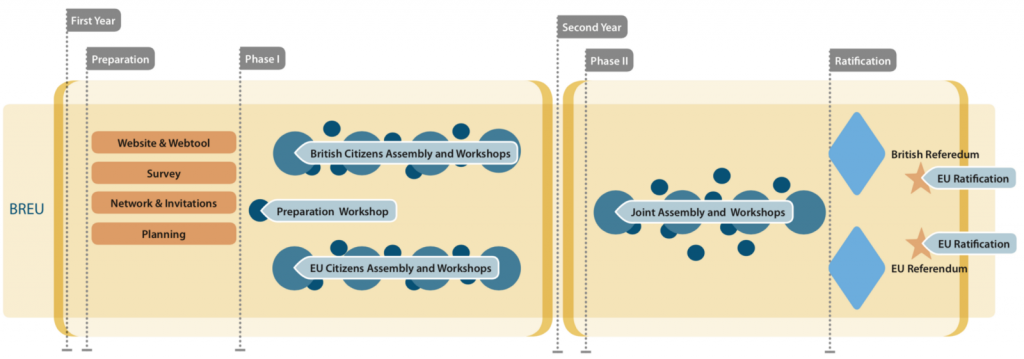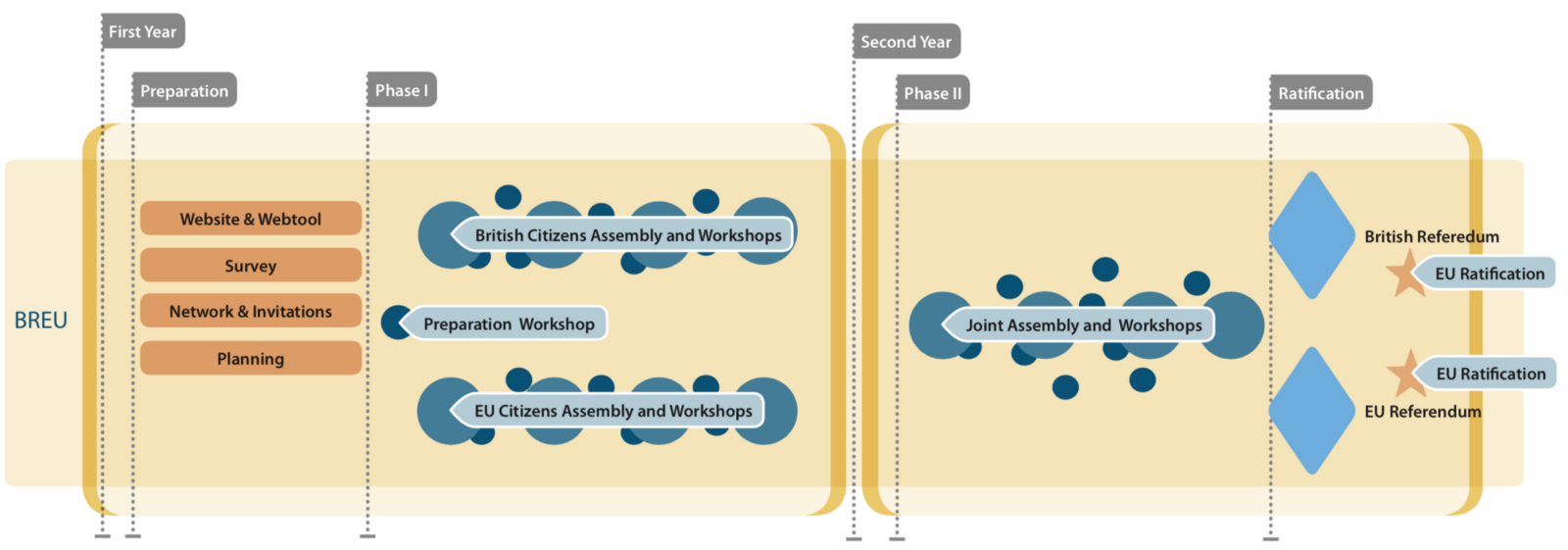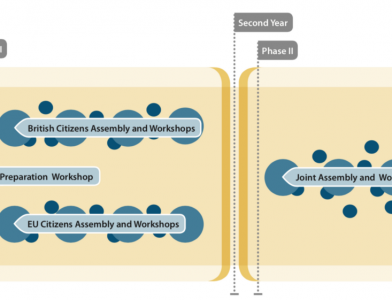A proposal for a joint participatory design process by Britain and the EU to shape a prosperous relationship for a new future

Theresa May has lost the Brexit deal vote.
This is the preliminary end of a process which was driven by abuse of power, wrong judgment, inadequate planning, hate, fear, disintegration, division, deceit and a complete lack of vision and innovation.
Now it is time to reconsider all options. With this short impulse, we seek to propose of how to work through this crisis by embracing an open process of co-creation.
Britain has to find back to inner political stability and a state of reconciliation and political progress. The EU clearly should not go back to business as usual but use this historical situation for necessary reform, redesign, and transformation of its political and administrative structure.
Our proposal is therefore based on the assumption that, whatever the outcome will be, both Britain and the EU are interested in creating a prosperous relationship in peace which supports and thrives the economic, social, political and scientific lives on both sides of the canal.
This is the roadmap we propose:
- Delay article 50 for another two years. For the time being, Britain stays in the EU and will partake in the elections of the European Parliament in may. It might be worth considering to elect a new functioning government in Britain for that purpose immediately.
- The two year period consists of two phases:
In the first year, parallel citizen assemblies and participatory policy design workshops are being held in the EU and in Britain. Their goal is to give both Britain and the EU as a bloc time to reflect upon as well as to draft a vision and one or more possible scenarios of how they want to shape their future relationship from their own perspective.
In the second year, a joint assembly is convened in which an agreement on the future relationship is shaped in a participatory design process in partnership rather than in an antagonistic negotiation process. The result of this assembly will be one or more possible scenarios as policy recommendations. - At the end of the two-year phase, there will be referenda with the option to vote for the status quo, a hard exit scenario or the scenarios developed through the participatory assembly process.
A process like this will trigger and positively facilitate a necessary deliberation on transforming the European Union by more democracy rather than by less. It will give a chance to install an open and transparent process for engaging in an empowering public discourse and policy design and innovation process involving the citizens of the EU and its member states directly. This procedure could also become a standard roadmap for other nations considering leaving or wanting to reform the block.
For this project, it is advisable, if stakeholders from all parts of society can be won over to participate. For the results to be broadly accepted and legitimized in most of society, there needs to be a high degree of representativeness of a cross-section of society. This can be achieved through, e.g. participation by lottery or transparent quotas.

